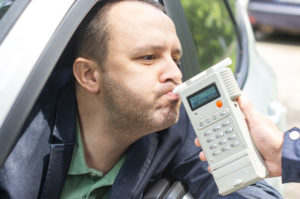Almost anyone pulled over and accused of a DUI has been asked to take a breathalyzer. Many assume that these are perfect tests that are always accurate. This is far from the truth. Keep reading if you are interested in learning about the way breathalyzers work and how they can be inaccurate. If you are in need of a consultation with a criminal defense attorney, contact Chambers Law Firm at 714-760-4088 today.
Can Alcohol Really Be Detected through Your Breath?
The short answer is yes. Think about it this way: Have you ever been near someone who was drinking and been able to smell alcohol on their breath? It is likely that you have – but it is important to know that breathalyzers do not work the same way. They do not “smell” a person’s breath – they can analyze the breath on a molecular level.
How? Because alcohol molecules are very small. They can quickly get through membranes within the body, which is why alcohol can begin to affect you just minutes after taking a drink. Alcohol does not get changed when it goes through the stomach – it gets absorbed into the bloodstream. That blood goes through the lungs and some of the alcohol is exhaled. This is how a breathalyzer detects not just the presence of alcohol but amounts.
There Are Three Types of Breathalyzer Technology
When it comes to whether or not breathalyzers are accurate, it depends largely on the type. There are three options:
- Semiconductor technology. These are very cheap and use low-voltage metal oxide. These can regularly result in false positives if there are other substances present. However, they may be good options for a driver to determine whether or not they should be driving.
- Fuel-cell technology. The most common type the police use for roadside tests, these are alcohol-specific and reliable. False positives are much less likely but not impossible.
- Infrared technology. These are the biggest and most costly options. The alcohol molecules are actually absorbed by the light so that they can be identified and measured. These are most commonly found in police stations. They are very accurate.
Accuracy Depends on the Facilitator Doing it Correctly
Breathalyzers have their own margins of error but the most likely reason that a person may get inaccurate results is if the test was not administered correctly. This is why your criminal defense attorney will often begin building your defense case by determining if your test was administered correctly and lawfully.
If you or a loved one has been accused of a DUI then it is important to work with an experienced attorney who can help you find the best way forward. Contact Chambers Law Firm now at 714-760-4088 for a free case evaluation.





